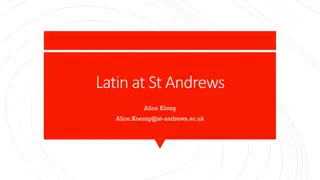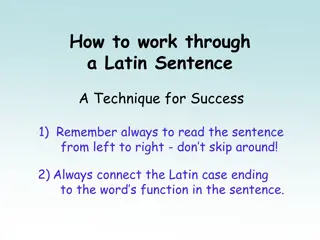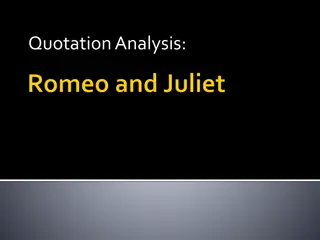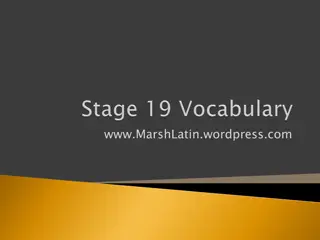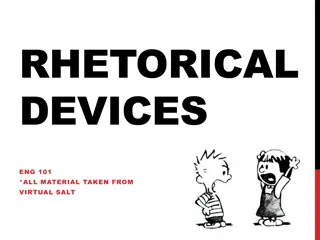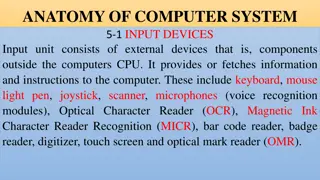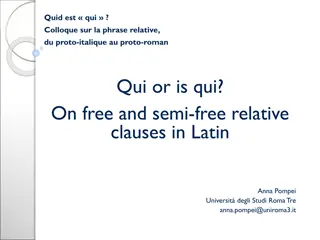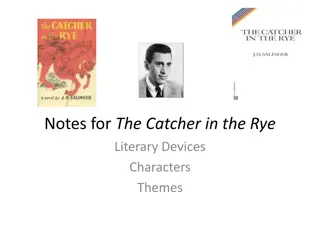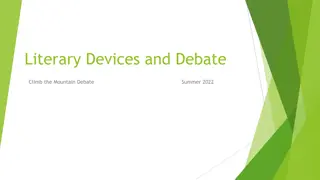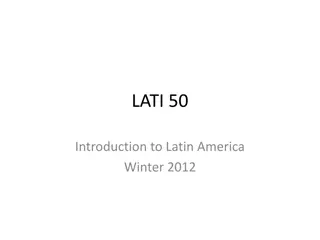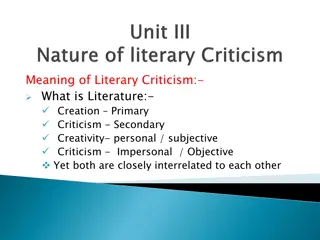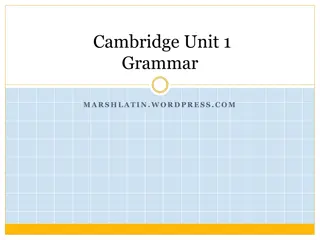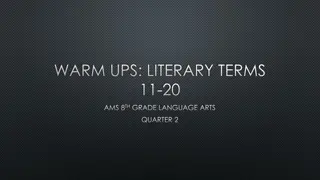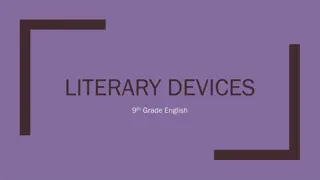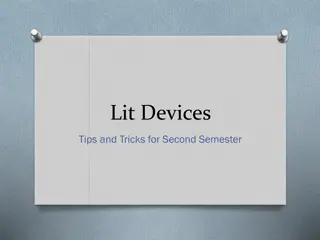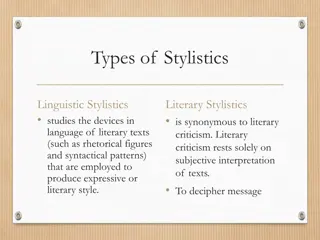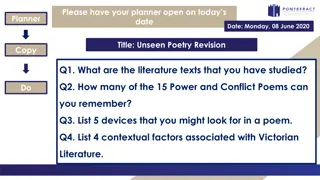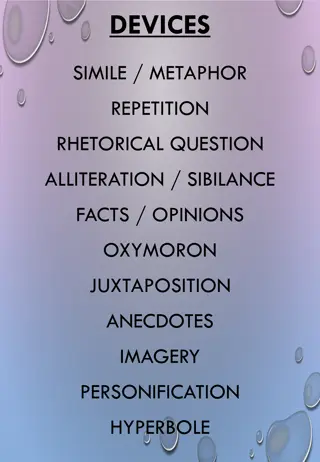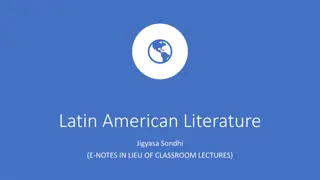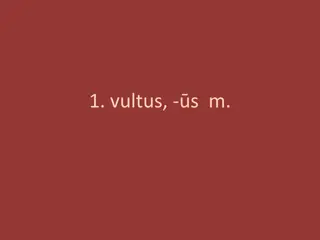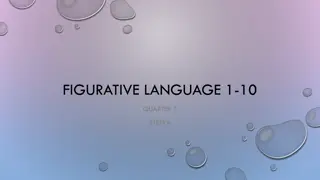Exploring Latin Literary Devices Through Examples
Uncover the beauty of Latin literary devices through vivid examples such as alliteration, anaphora, allusion, and more. Dive into the world of Latin literature and enhance your understanding of these powerful techniques.
Download Presentation

Please find below an Image/Link to download the presentation.
The content on the website is provided AS IS for your information and personal use only. It may not be sold, licensed, or shared on other websites without obtaining consent from the author. Download presentation by click this link. If you encounter any issues during the download, it is possible that the publisher has removed the file from their server.
E N D
Presentation Transcript
Latin Literary Devices MarshLatin.wordpress.com
1. Marcus me momordit. A. alliteration B. anaphora C. allusion D. asyndeton
2. non feram, non sinam, non patiar A. alliteration B. anaphora C. allusion D. asyndeton
3. videt, sentit, scit. A. alliteration B. anaphora C. allusion D. asyndeton
4. magnas urbes oppida parva A. Chiasmus B. Hysteron Proteron C. Metaphor D. Hendiadys
5. Dixit me inventum A. Hyperbole B. Litotes C. Ellipsis D. Metaphor
6. luctus et labor A. Chiasmus B. Hysteron Proteron C. Metaphor D. Hendiadys
7. Catilina est mons vitiorum. A. Hyperbole B. Litotes C. Ellipsis D. Metaphor
8. mortuus est et hostem inruit A. Chiasmus B. Hysteron Proteron C. Metaphor D. Hendiadys
9. Haud stultus erat Cicero. A. Hyperbole B. Litotes C. Ellipsis D. Metaphor
10. Horatius est lux litterarum Latinarum. A. Metaphor B. Chiasmus C. Hysteron Proteron D. Hendiadys
1. Alliteration: repetition of the same letter at beginning of words or syllables: Marcus me momordit.
2. Anaphora: the repetition of a word or phrase for emphasis: non feram, non sinam, non patiar
3. Asyndeton: omission of conjunctions: videt, sentit, scit.
4. Chiasmus: "a-b-b-a" arrangement of words: magnas urbes oppida parva (adjective, noun, noun, adjective)
5. Ellipsis: omission of words: Dixit me inventum. ("He said I had been found." esse is missing).
6. Hendiadys: use of two nouns together to express a noun modified by an adjective: luctus et labor (meaning "grievous toil")
7. Hyperbole: exaggeration. Catilina est mons vitiorum. ("Catiline is a mountain of vices.")
8. Hysteron proteron: placing first what the reader might expect to come last mortuus est et hostem inruit ("He died and he rushed against the enemy")
9. Litotes: use of a negative to express a strong positive Haud stultus erat Cicero. ("Cicero was very intelligent").
10. Metaphor: expression of meaning through an image Horatius est lux litterarum Latinarum. ("Horace is the light of Latin literature.")
11. Metonymy: substitution of one word for another that it suggests Neptunus me terret (to mean, "the sea frightens me").
12. Onomatopoeia: use of words that sound like their meaning Murmurant multi (the "m" s produce the sound of murmuring).
13. Oxymoron: use of an apparent contradiction parvum monstrum
14. Personification: attribution of human characteristics to something not human Ipsa saxa dolent. ("The rocks themselves grieve")
15. Polysyndeton: use of many conjunctions et videt et sentit et scit
16. Simile: comparison using a word like sicut, similis, or velut. Volat sicut avis. ("He flies like a bird.")
17. Synecdoche: use of part to express a whole Prora in portam navigavit. ("The ship sailed into the harbor." prora [prow] for navis [ship]).
18. Tmesis: the separation of a compound word into two parts saxo cere comminuit brum (for saxo cerebrum comminuit: "He smashed his brain with a rock.").
19. Tricolon crescens (ascending tricolon): combination of three elements, increasing in size non ferar, non patiar, non tolerabo
20. Zeugma: use of one word in two different senses simultaneously Aeneas tulit dolorem et patrem Troia. (Aeneas carried grief and his father from Troy).


